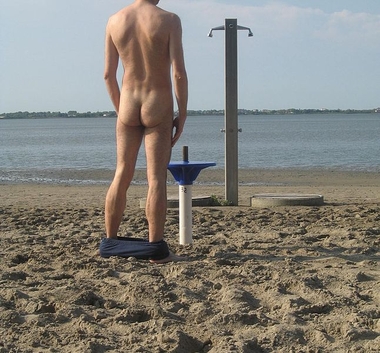Nudity not a political statement says SF judge

SAN FRANCISCO (AP) — A federal judge considering San Francisco's public nudity ban rejected arguments Thursday that simply disrobing in public was protected political speech akin to flag burning.
U.S. District Judge Edward Chen made his comments during a 90-minute hearing held to consider the new law requiring the covering of "genitals, perineum, and anal region" that is set to go into effect on Feb. 1.
A narrowly divided Board of Supervisors passed the law last month after residents and visitors to the city's renowned Castro district complained about what they called unsightly and unsanitary nudity in a plaza in the heart of the gay neighborhood.
Public nudity activists filed a federal lawsuit seeking to invalidate the law, arguing the government-ordered cover-up violates their 1st Amendment rights to express their political views. Their supporters also complained the law contradicts the city's live-and-let-live reputation.
But U.S. District Court Judge Edward Chen said Thursday it takes more than simply disrobing in public to make a political statement, as he rejected arguments that a public nudity ban was akin to outlawing the burning of the American flag.
"Flag burning has a pretty clear message," he said, while a naked person in public could be simply sunbathing.
"Being nude, it seems to me, doesn't have the same obvious particularized message," he said after the hearing held to consider the competing legal demands by the city's attorney and activists.
The judge said he would issue a written ruling on the competing requests before the end of the month.
The city wants the judge to toss out the lawsuit, while activists were requesting Chen block the ban from going into effect until the legal action is resolved.
If the ban becomes law, a first offense carries a maximum penalty of a $100 fine, but prosecutors would have authority to charge a third violation as a misdemeanor punishable by up to a $500 fine and a year in jail.
"Mere nudity is not a criminal offense," Christina DiEardo, a lawyer for the nudists, told the judge, noting that state law only criminalizes nudity such as indecent exposure.
She also argued that disrobing these days in San Francisco is de facto political speech because of the law and the publicity surrounding it. An hour before the hearing, two activists demonstrated naked in front of the federal courtroom along with several other supporters in various states of undress.
But deputy city attorney Tara Steeley said San Francisco does have the authority to pass its own law banning simple nudity.
"Government has a duty to protect the public that does not wish to be exposed to nudity on the streets," she told the judge. "Business is suffering in the Castro. Numerous citizens are no longer visiting the neighborhood."
The public nudity debate in San Francisco began about two years ago when the Board of Supervisors passed legislation requiring nudists to place clothing or a towel between them in restaurants and on public benches and seating areas. That law enflamed political passions and prompted even more nudists to start gathering in the plaza, prompting complaints from nearby businesses that the activists were scaring away customers.
After three rambunctious meeting that included naked protests and arrests, the supervisors last month on a 6-5 vote passed the law that bans the public nudity with certain exceptions. The law exempts children younger than 5 and public nudity at certain events such as an annual street fair, the city's Gay Pride Parade and its Bay-to-Breakers foot race, which is noted for the wacky costumes — or lack thereof — of participants.
Copyright 2013 The Associated Press.





